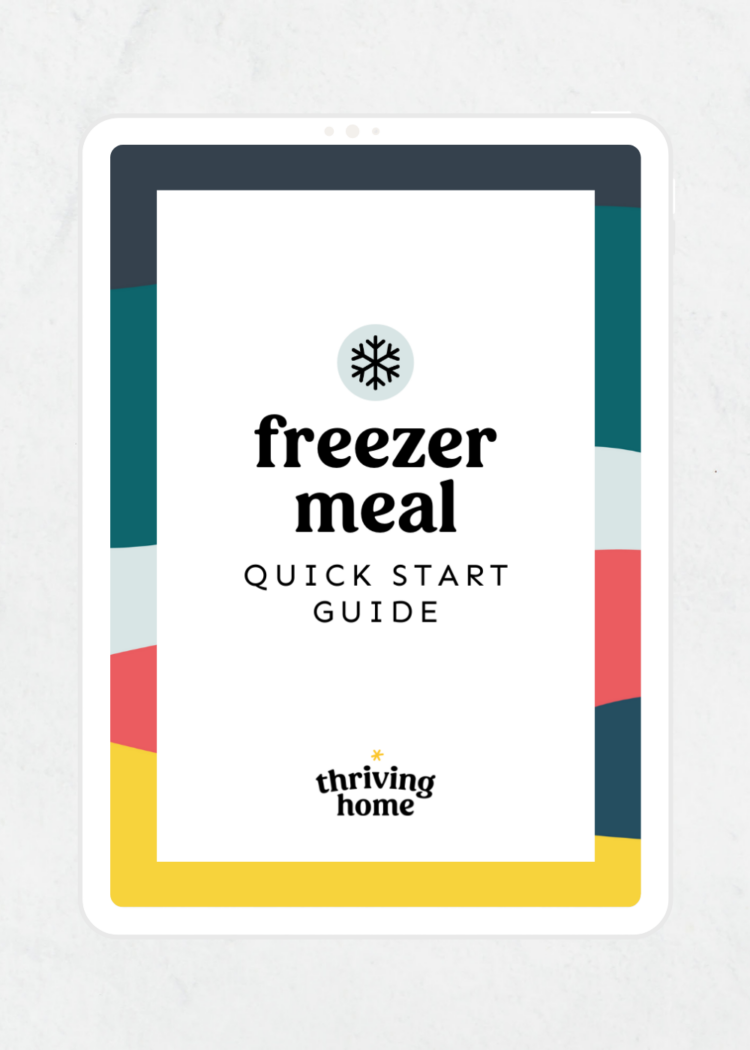Babies with Acid Reflux: Help & Encouragement for Moms
This post may contain affiliate or sponsored links. Please read our disclosure policy.
I survived having a baby with acid reflux. I don’t use the term survived lightly, nor would other moms whose kiddos had reflux.
But we made it. Kicking and screaming, we made it. And now we have a happy, delightful 7 month old who doesn’t even remember the rough days and nights. Her parents do though. 🙂
One of the most helpful things for me was to talk to other moms who had gone through it. I was desperate for hope that this would end some day. It helped so much for someone to simply say, “I know what you’re going through…you aren’t alone…it will get better.” Since hearing about others’ experiences was so helpful to me, I thought maybe sharing my experience just might help a struggling mom out there.
A Baby with Reflux: What It’s Like
I was under the assumption that acid reflux meant your baby spit up all the time. While this is a form of it, its symptoms can manifest in many different ways. In our situation, at around 8 weeks old, my baby just started crying when eating. It started with just 1-2 times a day and progressively got worse.
I thought she was refusing to breastfeed so we tried all types of bottles. Those didn’t work either. No matter what we did, she would just scream and cry any time it was time to eat even if she was hungry. At this point, she was eating every 3 hours so you can imagine how exhausting it was to see your hungry baby struggle that much in a day.
It’s hard. It’s heartbreaking. It’s frustrating. You feel helpless and powerless to make it better. Reflux puts your baby in a bad mood. They can’t easily soothe themselves or settle down. They don’t nap long. They wake up at night frequently. They cry their eyes out when eating. You don’t want to feed them in public because of the crying. They eat less so they want to eat more frequently which only flares up the reflux more.
It’s stressful to leave them with someone else, but it’s absolutely exhausting to be with them 24/7. You feel like you provide no comfort but know that you are all they have. It’s easy to grow apathetic towards the crying. It messes up any type of routine you are trying to establish. It makes you jealous of moms whose babies eat and sleep so well. It just sucks.
Acid Reflux Treatment for Our Baby
(Disclaimer – This was written in 2012. Treatment methods have likely changed so consult your peditrician with any questions!)
We were initially put on Zantac which required us to squirt medicine into my baby’s mouth 3 times a day. Luckily, she didn’t mind the taste, so she usually complied. They told us Zantac could take up to 7-10 days to see results. So we had to buckle down and get through that week in hopes that the medicine would kick in. Her symptoms seemed to get a little better, but she was still very bothered when eating.
After 9 days of Zantac, we moved to Prevacid. We had to split a capsule in half and give it to her in the morning and evening. These expensive little pills are tricky. You have to dissolve in water, suction the water up in a syringe, and then squirt it in the mouth. We were told to give it to her before meals, so we did this for a while seeing little results. After doing some online research, I learned that the medicine is much more effective if given 30+ minutes prior to a meal.
When we started doing this, we saw much better results. I experimented a bit with my diet too. I cut out caffeine, chocolate, and limited my dairy intake. I’m honestly not sure how helpful it was to change my diet, but I was willing to do anything at that point. My little gal started to show some improvement around 5-6 months but every baby is different.
Tips on Coping with Acid Reflux in a Baby

I did tons of research online. Tons. I found lots of contradicting information and eventually came to the conclusion that you just have to learn what works through trial and error. Below I’ve listed some recommended tips that I tried. Take them or leave them.
You are not alone.
First of all, realize you are not alone, sweet mama. If you don’t believe me, just skip to the comments section of this post and grab a kleenex. Please know that there are so many other moms out there walking a similar road that you are. I hope you can find comfort in knowing this.
Elevate head 30 minutes after eating.
This is one of the most common pieces of advice I found. After feeding my gal, I often put her in her bouncy seat or propped her up on a boppy pillow to hang out for a while after she’s chowed down.
Elevate the crib.
We stacked some text books under one end of the crib to give it a tilt. She ended up towards the foot of the crib by the end of a night, but at least her esophagus wasn’t being burned by laying flat.
Bottle Feed (with breast milk).
This actually goes against a lot of online advice, but we found bottles to work better to get more ounces in her. When my baby was upset, it was really difficult to get her to latch on to breastfeed. It is a lot easier to use a bottle in those upset moments. Keep pumping though, because breast milk helps prevent flareups while formula can trigger them.
Use the pacifier.
To get her calmed down during eating, we often gave her the pacifier so she could soothe herself a little. After she calmed down, we’d do a quick switch-a-roo to the bottle and she’d be more likely to take it.
Swaddle while feeding.
For some reason, this really worked with my daughter. She’d be super wound up until we swaddled her up and tried again. She would often take the bottle much better after that.
Distraction is the key!
Again, since we bottle fed a lot, we were able to walk around, go outside, stand under the fan, move room to room, etc. Anything we could find to take her mind off of her pain helped her to gulp down a bit more. I also would make up songs to sing, pray out loud with her, or just talk about anything.
Take a break.
Often times we found that Adelyn would take two ounces or so and then be thrown into her crying fit. At first we tried to push through and continue feeding. What we found more helpful was to stop as soon as she started to get upset and take a 5-10 minute break. She was a lot more likely to finish her bottle after she had time to take a breather. This can be frustrating though because it seems like feeding takes forever!
Have others feed the baby.
This was more for my emotional stability than anything. It helped so much to not have to go through it over and over again. When possible, I’d have my husband feed her or anyone else who was willing.
Hold the schedule/routine loosely (but still hold it!).
My husband and I do much better with structure. We had this gal on a flexible, 3 hour feeding schedule since day one. She adapted to it quite easily, so when the reflux hit and she was wanting to eat every 2-2.5 hours we were thrown off a bit. Her sleeping and naps went all wacky too. We initially resisted the change but eventually realized we needed to adapt to what the little lady was telling us. It was good for us to let go of our expectations and hold everything loosely. At the same time, we didn’t completely quit aiming towards a routine. I think it’s important to not let reflux be an excuse for everything.
Take one feeding at a time.
There would be mornings when I would wake up and dread the day. However, when I took one feeding at a time, it made it seem more doable.
Document
This sounds weird and slightly anal, but it helped me a lot to write down how each feeding went. That way I could remind myself when she did have good feedings as opposed to just remembering the bad ones. I wrote down the time she ate and either put a smiley face next to it or a check mark if it went bad. It’s also good to have objective facts to talk to the doctor about, if needed.
Address your emotional needs
I often prayed out loud or would sing worship songs when feeding her. I also quoted scripture that helped me. Here are some verse suggestions that helped me a lot: Isaiah 43:1-2, Romans 12:11-13, Phil 4:4, Isaiah 40:10-12, 2 Cor 4:17, 2 Cor 9:8, 2 Tim 1:7. We also have a set of verse cards designed for specifically for moms. Learn more about our On the Job Meditations.

Remember the promises of God
You are not alone -God is with you in suffering (Isaiah 43:2)
I will be with you;
and when you pass through the rivers,
they will not sweep over you.
When you walk through the fire,
you will not be burned;
the flames will not set you ablaze.
He will give you what you need to get through trials (Isaiah 40:29-31)
Even youths will become weak and tired,
and young men will fall in exhaustion.
But those who trust in the Lord will find new strength.
They will soar high on wings like eagles.
They will run and not grow weary.
They will walk and not faint.


Leave a Comment